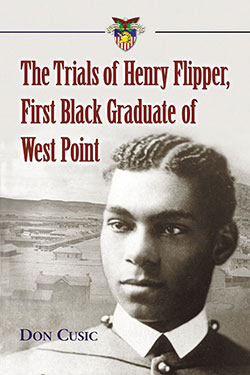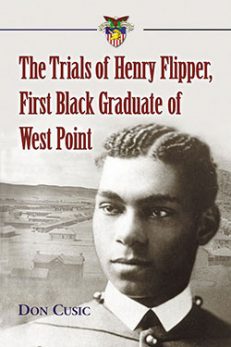The Trials of Henry Flipper, First Black Graduate of West Point
Original price was: $29.95.$23.99Current price is: $23.99.
In stock
About the Book
Born in 1856 in Thomasville, Georgia, Henry Ossian Flipper was nine at the end of the Civil War. His parents, part of a privileged upper class of slaves, were allowed to operate an independent business under the protection of their owner. This placed Henry in an excellent position to take advantage of new educational opportunities opening up to African Americans and he graduated from the United States Military Academy at West Point in 1877.
Flipper served at Fort Sill in what is now Oklahoma; took part in the Indian Wars; and served at Fort Davis in Texas, where a court-martial relating to missing funds ended his Army career with a dishonorable discharge. He later was an assistant to the Secretary of the Interior during the early 1920s Harding administration, and died in 1940.
Investigations into the circumstances of Flipper’s court-martial resulted in an upgrade to honorable discharge in 1976 and a posthumous pardon from President Clinton in 1999. Passages from Flipper’s 1878 autobiography and excerpts from contemporary military reports and newspaper articles contribute firsthand observations to this biography of West Point’s first black graduate.
About the Author(s)
Bibliographic Details
Don Cusic
Format: softcover (6 x 9)
Pages: 218
Bibliographic Info: 18 photos, notes, bibliography, index
Copyright Date: 2009
pISBN: 978-0-7864-3969-0
eISBN: 978-0-7864-8042-5
Imprint: McFarland
Table of Contents
Preface 1
1. The Early Years 5
2. West Point 21
3. In the Buffalo Soldiers 35
4. At Fort Davis 45
5. Missing Funds 64
6. The Court-Martial 77
7. The Trial Continues 94
8. The Verdict and Dismissal 111
9. Into the West 120
10. Flipper and Mexico 140
11. From the Wild West to Washington 154
12. Venezuela to Atlanta 167
13. Final Days 176
14. Conclusion 185
Chapter Notes 191
Bibliography 195
Index 203





